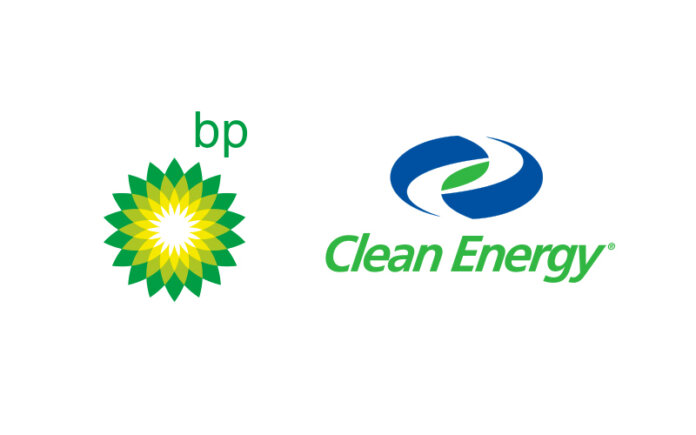Clean Energy Fuels Corp. says it will work with BP Products North America Inc., a subsidiary of bp, to develop, own and operate new renewable natural gas (RNG) facilities at dairies and other agriculture facilities.
Carbon emissions captured from dairies and turned into a transportation fuel reduce the harmful effects on long-term climate change. As a result, the California Air Resources Board gives these carbon-negative RNG projects a carbon intensity (CI) Score (gCO2e/MJ) of -250 (or lower) compared to 97 for diesel and 46 for electric batteries. The demand for this carbon-negative fuel has significantly accelerated over the last few years. Some of the largest heavy-duty fleets in the world such as UPS, Republic Services, New York Metropolitan Transportation Authority and LA Metro are currently and successfully operating tens of thousands of vehicles on RNG.
Clean Energy is the largest provider of RNG as a transportation fuel in the U.S. and Canada, the largest RNG fuel provider under the California LCFS program and currently has a joint RNG marketing agreement with bp established in 2018. In addition to the carbon-negative fuel, Clean Energy will continue to source RNG from other providers to supply its network of 550 fueling stations in North America and maintain its position in the California LCFS market. This also marks another strong step in Clean Energy’s ambition to meet the rapidly growing demand by customers for carbon-negative RNG and to deliver 100% Redeem branded RNG to its entire fueling infrastructure by 2025, which the company says it is well on its way to achieving.
“Carbon-negative RNG is being used today by thousands of vehicles with more and more fleets requesting it every week,” says Andrew J. Littlefair, president and CEO of Clean Energy. “Taking this next step allows us to expand the availability of the fuel while providing dairy owners with a way to make a significant impact on the environment and create an additional revenue stream.”
Clean Energy says it has made noteworthy commitments to transforming the way the transportation industry powers vehicles to have less of an impact on long-term climate change and believes the use of carbon-negative RNG is the most immediate, cost-effective and has the greatest effect of any alternative. Clean Energy has already identified potential RNG-producing projects and has plans to deploy funds for development and construction expenses in 2021.







